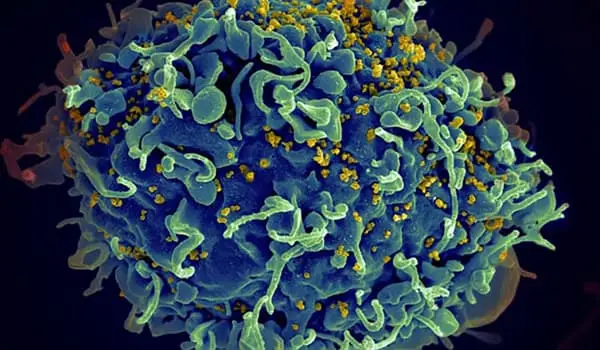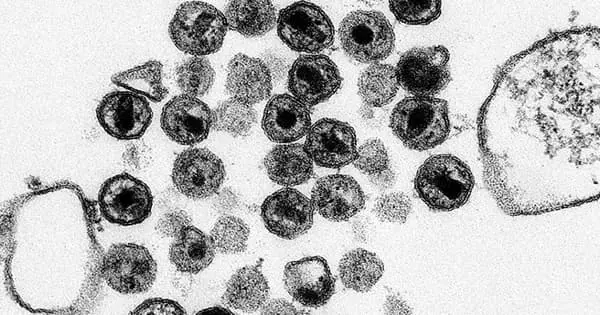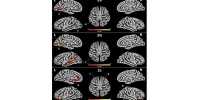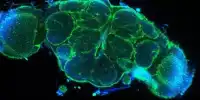Fortunately, AIDS is no longer a fatal disease as long as the patient continues drug treatment; however, current medications do not kill the virus. Instead, people with HIV take a combination of HIV drugs to reduce the amount of virus in their bodies, which can reduce the amount of virus in the body to undetectable levels. While reducing the amount of virus in the body to undetectable levels means the virus can no longer be transferred, even the most potent antiretroviral therapy drugs are unable to completely eliminate the virus.
According to a research team, a new vaccine technology that eliminated the human immunodeficiency virus (HIV) in test monkeys has raised hopes for an end to the AIDS pandemic. The researchers concentrated on a bacterium that secretes a substance that boosts immune response. A vaccine was developed by fusing the bacterium’s genes with those of a weakened AIDS-causing virus.
According to the Japanese newspaper The Asahi Shimbun, a team of researchers in Japan developed a vaccine that was able to kill a type of human immunodeficiency virus (HIV) in macaques during an early trial. Yasuhiro Yasutomi, director of the National Institutes of Biomedical Innovation, Health, and Nutrition’s Tsukuba Primate Research Center, stated that the team’s goal is to begin human clinical trials within five years.
We developed a vaccine that was able to kill a type of human immunodeficiency virus (HIV) in macaques during an early trial. The team created a vaccine by using a special bacterium that boosts immune response. They then combined this with an AIDS-causing virus that had been weakened.
Yasuhiro Yasutomi
While being infected with HIV isn’t ideal, with the right treatment, the outlook is far better than it was when the virus first arrived in the United States in the early 1980s. However, so far, no treatment has been able to actually kill the virus, only to greatly mitigate the many negative effects it can have on human health. However, this may be beginning to change. According to Asahi, the Japanese team from the Tsukuba Primate Research Center stated that human testing could begin within the next five years.
The team created a vaccine by using a special bacterium that boosts immune response. They then combined this with an AIDS-causing virus that had been weakened.
When the vaccine was given to crab-eating macaques, the animals became infected with HIV, but further testing failed to detect the virus, according to the researchers. The vaccinated macaques were then infected with a more potent virus that always kills the victim. However, the virus vanished in six of the seven subjects. Blood and lymph node cells from the six surviving macaques were extracted and injected into healthy monkeys. Four of the subjects were found to be virus-free.

The seven crab-eating macaque test subjects became infected with simian-HIV, but tests were unable to actually detect the virus, according to Asahi. Even after being injected with a stronger virus that could prove fatal otherwise, the virus disappeared without a trace in six of the seven test subjects.
The researchers are now hoping they can use HIV taken from patients who are undergoing drug treatment to create a vaccine meant for humans. It’s not the only prominent effort to develop an HIV vaccine. US-based pharmaceutical Moderna recently kicked off human trials for its mRNA-based HIV vaccine, the same technology used in its widely administered COVID-19 vaccine.
Over the last 40 years, HIV has consistently been one of the deadliest infectious diseases. But, thanks to recent medical advances, there is now more hope than ever that the virus can be eradicated once and for all.
The research team intends to develop vaccines using HIV extracted from drug-treated patients. It is hoped that these vaccines will be used as an additional treatment method. HIV has proven to be a resilient and adaptable virus, which is why developing a working vaccine against it as soon as possible is critical. It remains to be seen whether or not this new approach will work in humans.
Steven Deeks, a clinician at the University of California, San Francisco who conducts cure trials, says he plans to test a similar combination of a TLR drug and a potent antibody in patients who have been fully suppressed for several years. “There’s no clear mechanism here,” he says, “but as a clinician, I don’t really care.” “It’s all a big black box with something going in and something going out. There is no virus to be found here.”
AIDS is one of the world’s three most common infectious diseases. HIV infects approximately 37.7 million people worldwide, including approximately 20,000 in Japan. While AIDS is no longer a fatal disease as long as drug treatment is continued, the current medications do not kill the virus. The continual use of such drugs over a long period of time is not only expensive but could also produce side effects as well as create a drug-tolerant virus.















